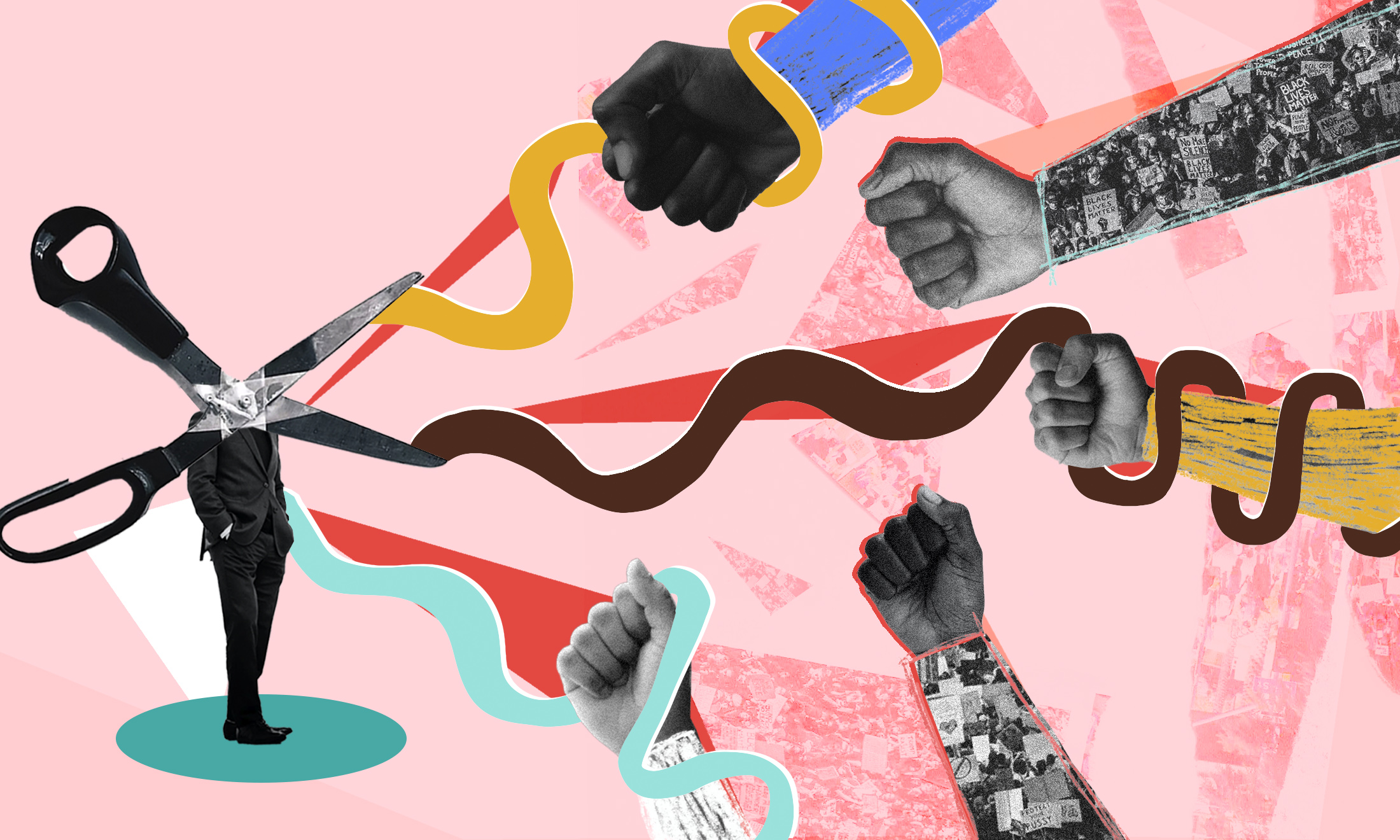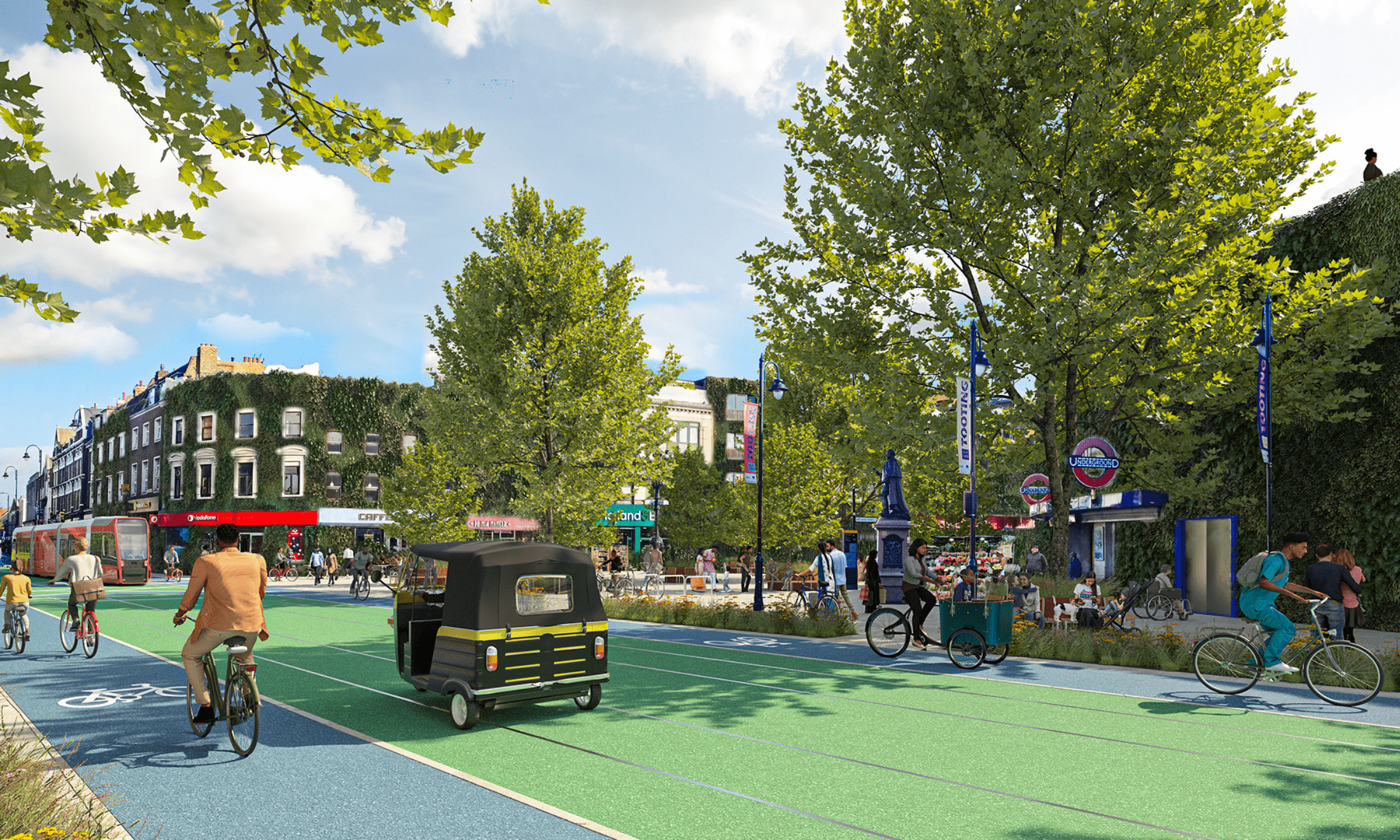
Naomi Gennery
Resisting the cost of living crisis in the UK could be the tipping point for socialist solidarity
Progressive movements should not focus on social issues in isolation. As we saw in countries like Colombia and Chile, solidarity builds collective power for sustained change.
Tatiana Garavito and Editors
19 Jul 2022
Content warning: this article contains mention of domestic violence
Last month, I witnessed my home country, Colombia, elect its first leftwing government and first Black female vice president. This political win followed prolonged social unrest since 2019 and was sparked by the proposal to lower the minimum wage for workers under the age of 25. Tired of decades of austerity and marginalisation, thousands of young people took to the streets, initiating a “paro nacional” (national strike) that brought the country to a standstill. Community organising and long-term protest created the political space and genuine possibility for sustained change.
But Colombia isn’t the only country with a recent leftwing victory on the international stage. In Chile, a 2019 increase in metro fares in the capital sparked a nationwide uprising against historic inequality, corruption, human rights abuses and neoliberalism’s failures. Under the slogan “Chile despertó” (Chile woke up), the protests forced the former rightwing government to change ministers and policies, allow for a vote on rewriting the constitution, and paved the way for a new leftwing government to be elected earlier this year.
Just this month, and after more than two weeks of national strikes, the indigenous movement in Ecuador forced the government to commit to reducing the cost of gas while derogating oil activity in the Amazon and banning all new mining projects around strategic water reserves and ancestral lands. Movements have also pushed politicians to commit to implementing economic measures such as subsidies and the cancellation of debts for poor and working class families.
These international power shifts have something in common: they run on socialist manifestos that are built and enriched by grassroots movements and they champion a politics centred on justice. Interestingly, these wins have been sparked by the cost of living crises exacerbated by neoliberal policies and fossil fuel dependency.
I can’t help but wonder if resisting Britain’s spiralling cost of living crisis can bring our own socialist solidarity, and if we dare to truly imagine, a long-term socialist victory.
“The days of progressive movements focusing on social issues in isolation may finally be behind us”
This summer, tens of thousands of rail workers walked out to join the biggest British rail strike seen in 30 years. Across the UK, actions were called due to more than three years of wage stagnation faced by workers in the rail industry, even since before the pandemic. This is on top of the increasing debt that low-income families are experiencing after a decade of social security cuts and underfunding. Last month, the Solidarity Knows No Borders coalition joined the strikers, highlighting the connections between the cost of living, the need to end years of hostile environment policies and a legacy of state racism. Organisers from the climate and migrant justice movements were also seen enthusiastically joining rail workers on the picket lines. Together, they are practising a kind of solidarity that can build our collective power for sustained change.
These actions signal that the days of progressive movements focusing on social issues in isolation may finally be behind us. It was only in 2019 that some Extinction Rebellion activists were encouraging others in the movement to learn from racist politicians and avoid taking “lefty liberal” positions such as “no borders” to not alienate potential rightwing allies. XR co-founder Roger Hallam described anti-racist, feminist, and global justice politics as “chronically overcritical, radical, and hard left” – a strategic flaw and a barrier to success.
Yet we know this isn’t true. Gender, class, migrant, disability and climate justice struggles all share the vision to dismantle systems of domination, extraction and violence imposed on communities around the world for centuries.
For example, the cost of living crisis, partly driven by profiteering energy companies raising their wholesale prices, is affecting women’s rights both directly and indirectly. Women are already more likely to be in lower-paid jobs, and according to the Living Wage Foundation, hold a disproportionate responsibility for household shopping of goods that are susceptible to price increases.
The economic crisis also creates further dangers for those already in abusive relationships, as financial pressures can act as triggers for the abuser. Domestic violence refuges have seen a rising demand for spaces spurred by the cost of living crisis in recent months, yet government cuts to local services have meant that one in six have closed in England since 2010. These cuts have been enacted by the same Tory government who is in the pockets of Big Oil. Clearly, these issues are not only interconnected, they are circular. Coalition movements have the power to end austerity, transphobia, fossil fuels, and the hostile environment if we connect our struggles and act in solidarity.
The new ‘pink tide’ in Latin America (the shift towards left-leaning governments in the region) shows the importance of connecting local and international struggles and building from difference, using narratives that help communities construct the necessary power to imagine and encompass new material realities. In Colombia, a country that has faced a civil war for decades, the leftwing government won by bringing together broad constituencies. Similarly in Chile, the uprising became a protest for all people – young people called for better pensions for their grandparents, while indigenous communities, women and queer people all shared in their struggles. Social movements can’t afford to continue working on silos, competing for funding or creating celebrity cultures that end up reproducing the same system’s logic.
It’s time for progressive movements to not give in to fear campaigns which keep our movements divided. Determined grassroots organising and coalition building is necessary to enact the radical and bold visions that marginalised communities so desperately need. From climate justice to state racism, from the cost of living to the erosion of women’s rights and LGBTQI+ rights, people and communities in Britain are waiting to explore the interconnectedness of our struggles. If we can continue building momentum around our shared struggles and shared solutions, now might be the best time to create a movement of movements that opens up new spaces for justice-centred politics in Britain and elsewhere.
Learn more about the Climate Reparations Network here.
Our groundbreaking journalism relies on the crucial support of a community of gal-dem members. We would not be able to continue to hold truth to power in this industry without them, and you can support us from £5 per month – less than a weekly coffee.

This powerful animation commemorates the lives lost in Nigeria’s #EndSARS protests

Nadia Whittome: ‘Jeremy Hunt’s Spring Budget is a slap in the face for Britain’s workers’

Boohoo’s attempts to appear ethical are empty and damaging – we must keep calling them out





